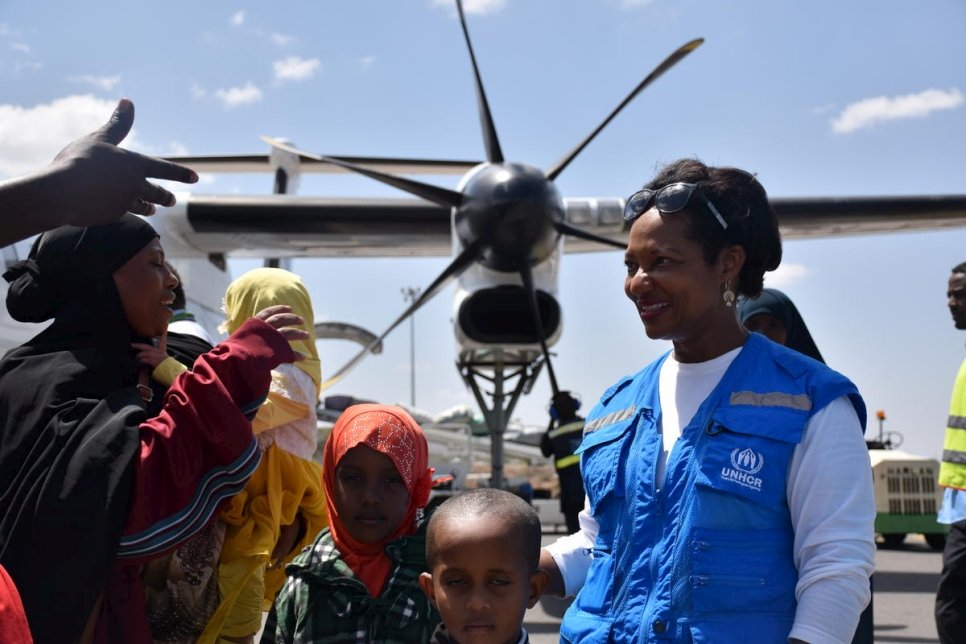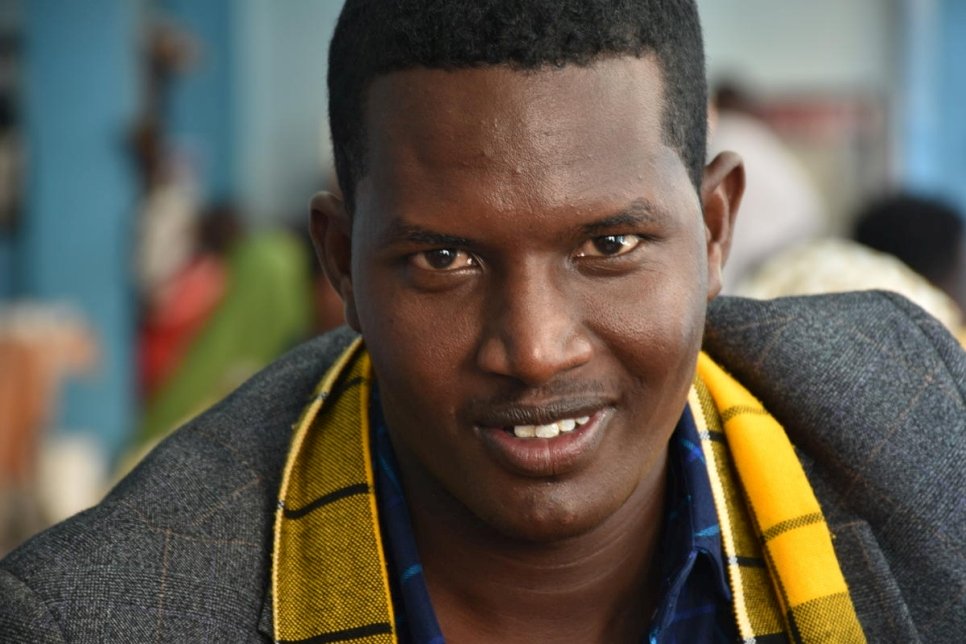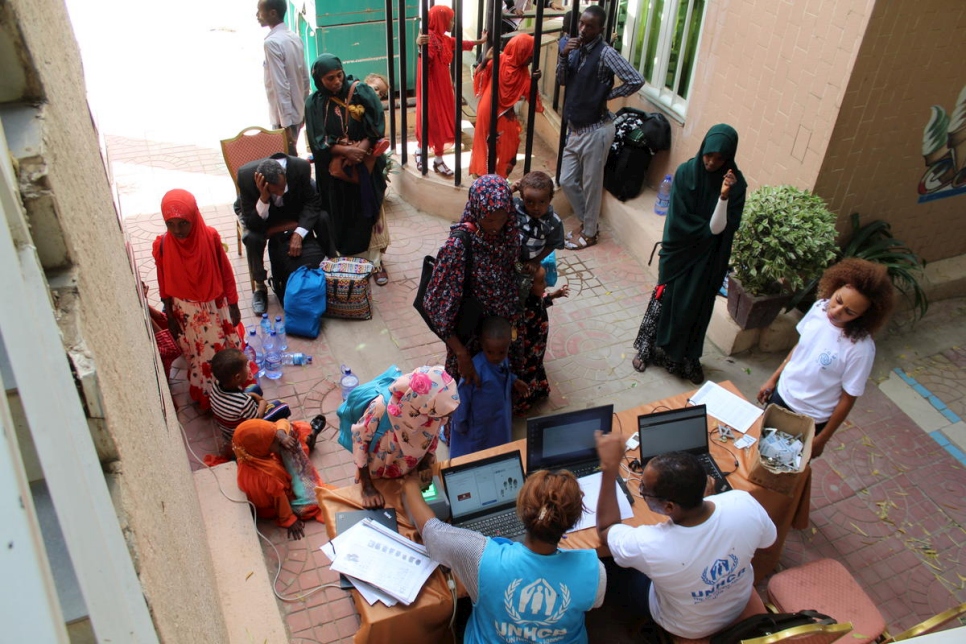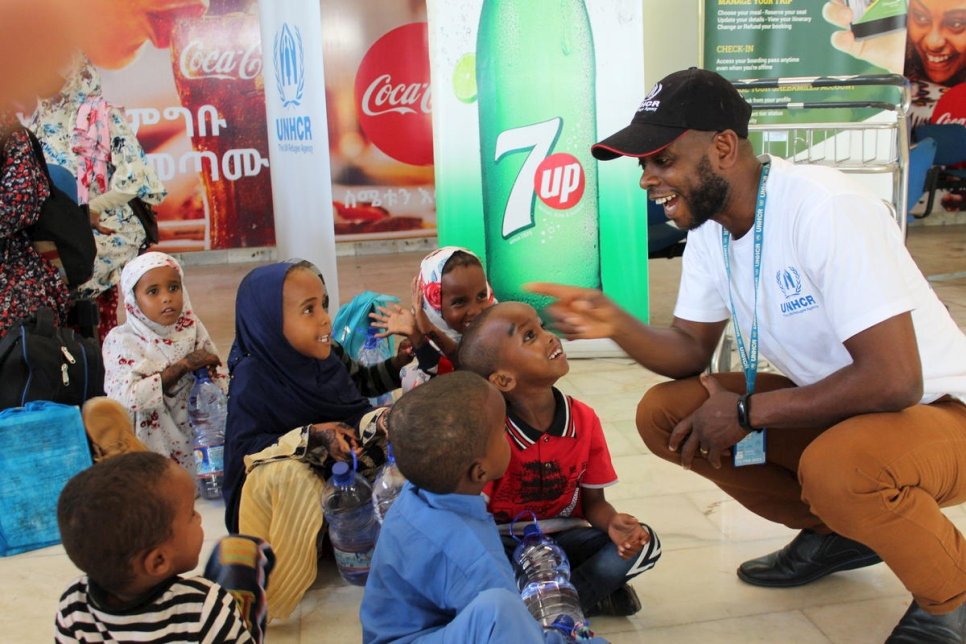Ethiopian refugees in Kenya make an emotional return home
Dozens of refugees return home to eastern Ethiopia from Kenya's Kakuma camp.
Ardo Hassan, 43, stands with her three children in Dire Dawa, Ethiopia. They returned home after 11 years in exile.
© UNHCR/Helle Degn
Ever since Ardo Hassan Kowdan fled Ethiopia to Kenya 11 years ago, she had dreamed of the day she could go home. As she boarded a plane in Kakuma, in northeastern Kenya on Wednesday to take her to Dire Dawa in eastern Ethiopia, it was a big moment.
“I’m extremely happy to return to where I was born and gave birth to my three children,” says the 43-year-old.
Abdirashid Mohumed, 24, nodded in agreement as he stood beside her. He had dressed up for the occasion in a charcoal grey jacket and blue, checked shirt.
“I am 100 per cent happy to be going back home. I have missed my family and friends a lot,” he said.
The two are among 76 Ethiopians who returned home this week from Kakuma refugee camp, the biggest group so far to go back voluntarily.
“I am 100 per cent happy to be going back home. I have missed my family and friends a lot.”
The movement, supported by UNHCR, the UN Refugee Agency, and the Governments of Ethiopia and Kenya, is part of a growing trend in which thousands of Ethiopian refugees in the region are choosing to return home. They are motivated, in part, by the impact of recent political and economic reforms on their homeland.
Eleven people returned last year and a further 4,000 are expected to follow this year, out of a total of around 28,500 Ethiopian refugees in Kenya.
The majority of the returnees originate from Ethiopia’s Somali region and have lived as refugees for over a decade. More than half are women and girls, some born and raised in the camp.
UNHCR is providing the returnees with a support package that includes cash and transport allowances so they can travel to their places of origin.
When the plane finally landed in Dire Dawa, the passengers disembarked, looking happy. Staff from UNHCR, led by Ann Encontre, UNHCR’s Representative in Ethiopia, welcomed them as did officials from ARRA, the Ethiopian Government’s agency in charge of refugees and staff from the International Organization for Migration.
“All refugees have the right to voluntarily return to their country, when they feel the time is right, in safety and dignity,” said Encontre. “They come home and establish themselves among their families and villages where they had to flee from and UNHCR is really happy today.”
The group was registered and given a welcome meal. They spent the night in Dire Dawa before proceeding to Jijiga, the capital of Ethiopia’s Somali region.
The returnees have high hopes for the future, but meeting family and friends come first.
“I think I’ll die of happiness.”
“I just want to celebrate my reunion with my family,” said Abdirashid. “I want to enjoy that before thinking of doing something for a living.”
After a long time away, it will be vital for them to receive continued support to restart their lives from the government, UNHCR and other agencies.
Ardo said she wanted her children, who are 16, 17 and 18, back in school as soon as possible and has ideas for starting a business.
“Life as a refugee was not easy as I struggled to bring them up and educate them,” she said. “I will need support from the government and UNHCR for my new life.”
But first, her priority was to get home and meet her mother and relatives.
“I think I’ll die of happiness,” she said.
Additional reporting by Samuel Otieno in Kakuma, Kenya, Helle Degn and Kisut Gebre Egziabher in Dire Dawa, Ethiopia




